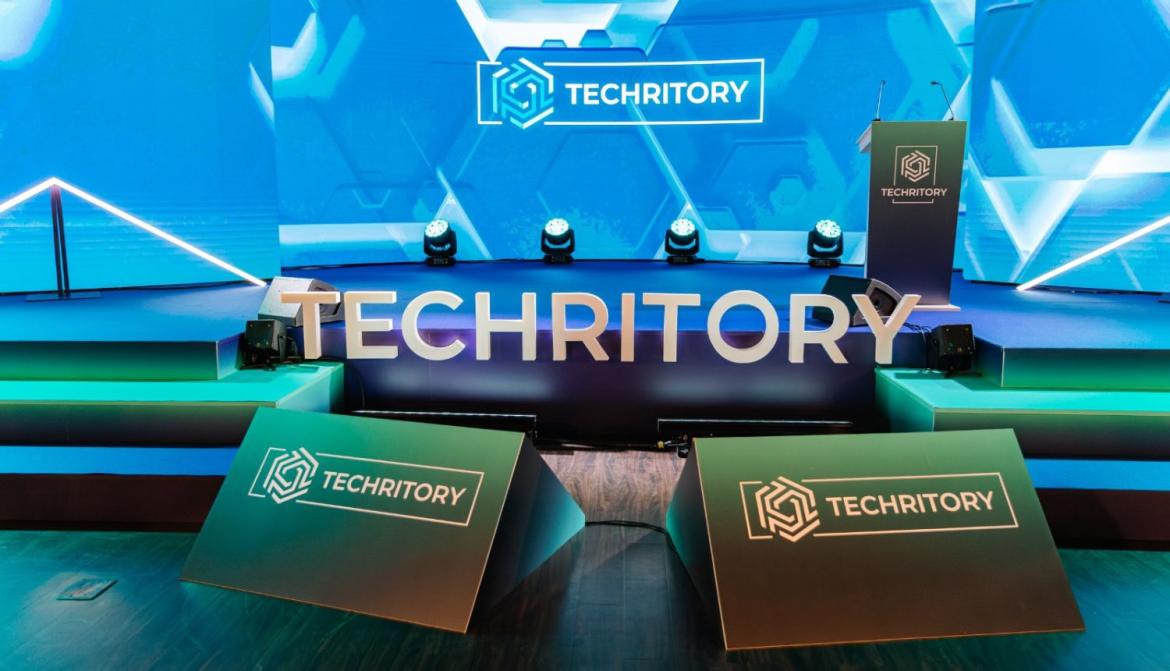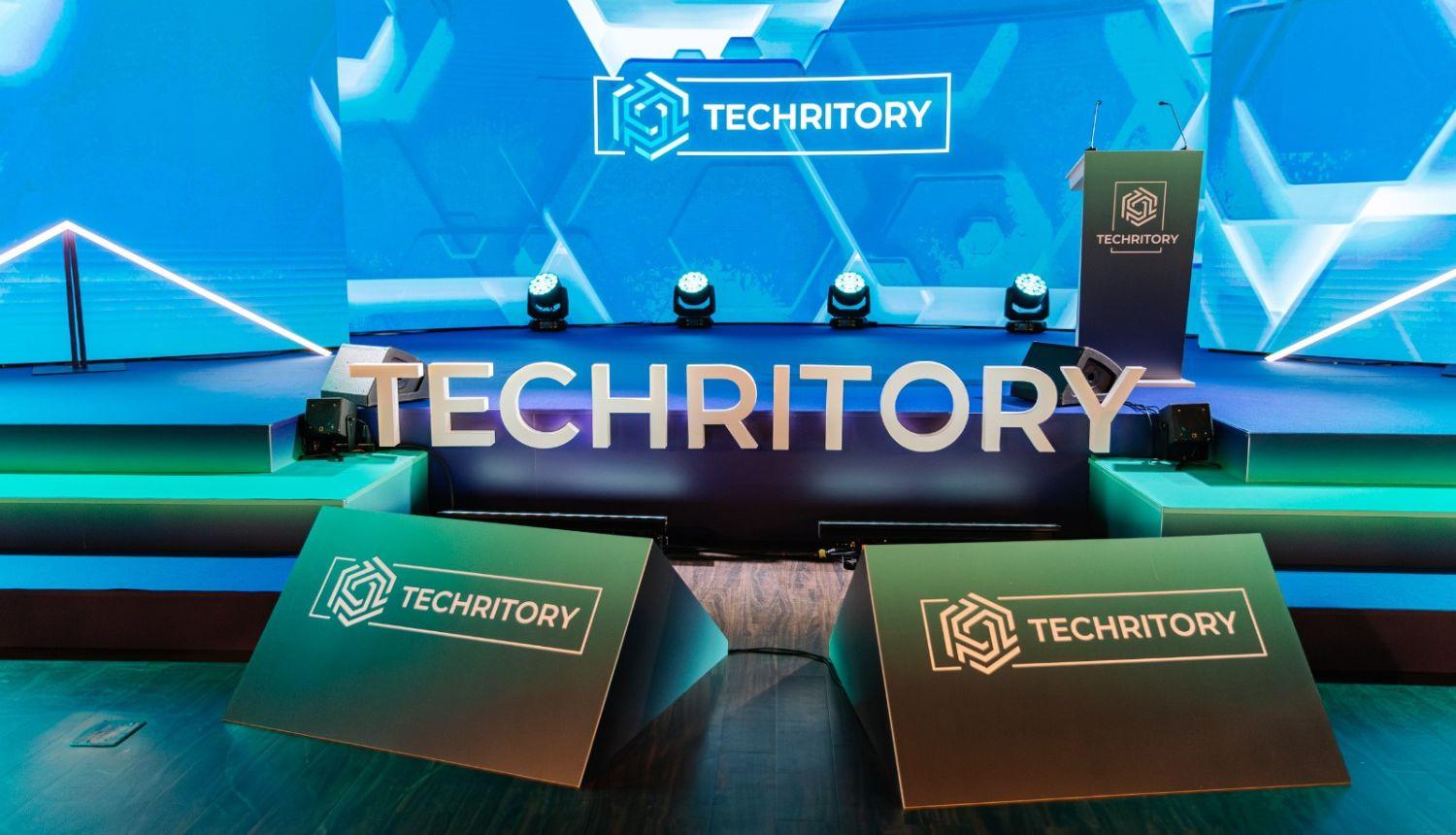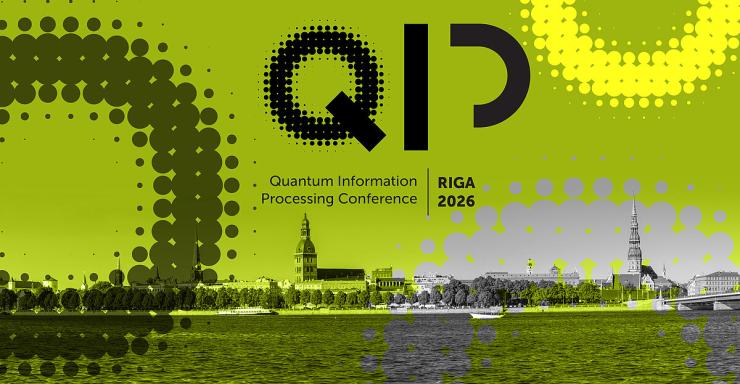Latvia is strengthening its position in the European technology landscape by advancing quantum communication and space research in cooperation with international partners. “Techritory 2025” is a European-level forum on the future of digital policy and innovation, held in Riga since 2018. This year, on October 22–23, special attention was devoted to the development of space and quantum technologies – fields that form the foundation for future security, data, and communication solutions. Both areas in Latvia are coordinated by the Ministry of Education and Science, ensuring a coherent approach to research, education, and innovation.

The Ministry of Education and Science representatives took part in the co-creation event “Funding the Future of Space: Horizon Europe and Beyond Networking Event”, as well as in activities dedicated to quantum technology development, including the session “Quantum Realities: Building Networks, Overcoming Challenges, Expanding Cooperation” and a panel discussion on the deployment of national-level QCI systems and networks within the project “Establishment of National Quantum Communication Infrastructure Systems and Networks.”
Lauma Sīka, Deputy Director of the Department of Higher Education, Science and Innovation of the Ministry of Education and Science, emphasised: "Quantum and space technologies will transform the future of security, data, and communication while creating new opportunities for research, innovation, and the economy. Latvia has a strong scientific base and internationally recognised talent in both fields – from quantum algorithms and secure communication networks to satellite technologies and the utilisation of space data. Our task is to ensure that this knowledge evolves into sustainable solutions and innovations. We are building the foundation for Latvia to be part of Europe’s quantum and space ecosystem – in science, security, and education.”
Developing the Space Ecosystem and Europe’s Secure Satellite Communications
The co-creation event on European space policy and industry development gathered representatives from the European Union Agency for the Space Programme (EUSPA), the Ministry of Education and Science, the Latvian Council of Science (LCS), Riga Technical University (RTU), and ESA BIC Latvia.
EUSPA representative Juan Ramón López Caravantes, Head of the Secure Communications Programme, highlighted the role of entrepreneurs in implementing EU space policy and presented the main programs – Galileo, Copernicus, EGNOS, and the new IRIS² constellation, which will use quantum cryptography to ensure secure communications across Europe, including in areas where internet access is currently limited.
Anna Leiškalne, Deputy Director for Science at the Ministry of Education and Science Department of Higher Education, Science and Innovation, stressed that the ministry, as the institution responsible for Latvia’s space policy, supports such international forums as part of strengthening the national space ecosystem. She also highlighted the importance of the Horizon Europe programme and informed that Latvia is currently developing its position on the forthcoming EU Space Act.
LCS representative Ingrīda Lavrinoviča introduced the Horizon Europe Cluster 4 Space Work Programme for 2026, encouraging researchers and companies to submit project proposals actively. RTU Tenure Professor Andris Slavinskis shared experience from satellite development and launch projects ESTCube-1 and ESTCube-2, while Ļevs Lapkis, Head of ESA BIC Latvia, invited start-ups to take advantage of the European Space Agency’s incubation opportunities.
Following these presentations, start-ups and professionals gave short pitches, sharing their ideas and partnership offers, and participated in individual networking sessions to establish new collaborations and exchange contacts.
Latvia’s Excellence in Quantum Technologies
Alongside space topics, Techritory 2025 also addressed trends in the development of quantum technologies in Europe and Latvia – another strategic direction under the supervision of the Ministry of Education and Science.
Quantum technologies represent the next revolutionary innovation in computing and security, significantly influencing Europe’s competitiveness and technological sovereignty. They enable the creation of exact, robust, and secure solutions, including quantum computers, sensors, secure data transmission, and quantum communication infrastructure.
In Latvia, quantum science is developing in several directions:
- Quantum algorithms and computing – The Quantum Computing Centre at the University of Latvia (led by Tenure Professor Andris Ambainis, Professor Aleksandrs Belovs, and Tenure Professor Vjačeslavs Kaščejevs) coordinates three QuantERA projects and is one of Europe’s leading research centres.
- Quantum communication and encryption – Riga Technical University, the University of Latvia’s Institute of Mathematics and Computer Science, and the state enterprise Latvian State Radio and Television Centre are implementing the national project LatQN, part of the EuroQCI initiative, to establish a secure quantum communication network in Latvia.
- Quantum optics and sensors – The Institute of Solid State Physics, the Laser Centre, and the Institute of Atomic Physics and Spectroscopy of the University of Latvia conduct research in quantum optics, nanotechnologies, photonics, and sensor solutions, all applicable to space missions.
Latvia is currently developing a National Quantum Strategy, based on the European Commission’s document “Quantum Strategy: A Quantum Europe in a Changing World.” The strategy outlines five priorities: research and innovation, infrastructure, ecosystem development, integration with defence and space technologies, and the advancement of quantum skills.
Sarmīte Mickeviča, Senior Expert on Digitalisation at the Ministry of Education and Science Department of Higher Education, Science and Innovation, presented Latvia’s contribution to the European Quantum Strategy, highlighting the Latvian Quantum Initiative, which brings together research, education, and innovation to strengthen long-term national competitiveness.
At the European level, the goal for the coming years is to expand the EuroHPC quantum computing network, introduce the European quantum internet and secure quantum communication infrastructure by 2030, and establish a European Quantum Competence Academy. In Latvia, quantum excellence is ensured by the Quantum Computing Centre, led by Tenure Professor Andris Ambainis, and the Quantum Nanoelectronics Group, led by Tenure Professor Vjačeslavs Kaščejevs, whose research has been internationally recognised.
The Techritory forum highlighted Latvia’s growing role in Europe’s technology and innovation ecosystem, strengthened by the synergy between science and industry and by international cooperation.


